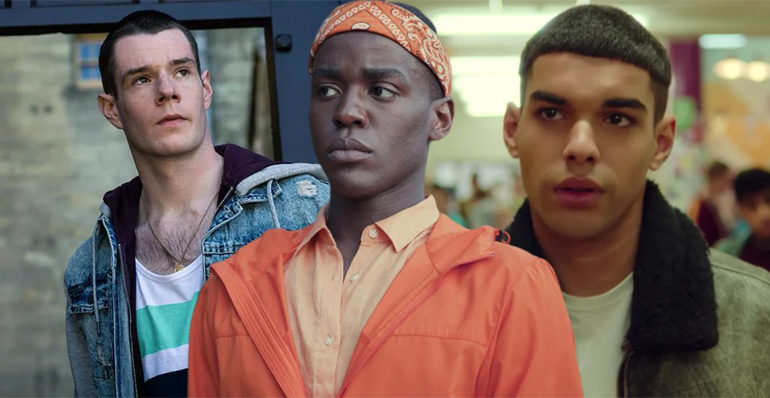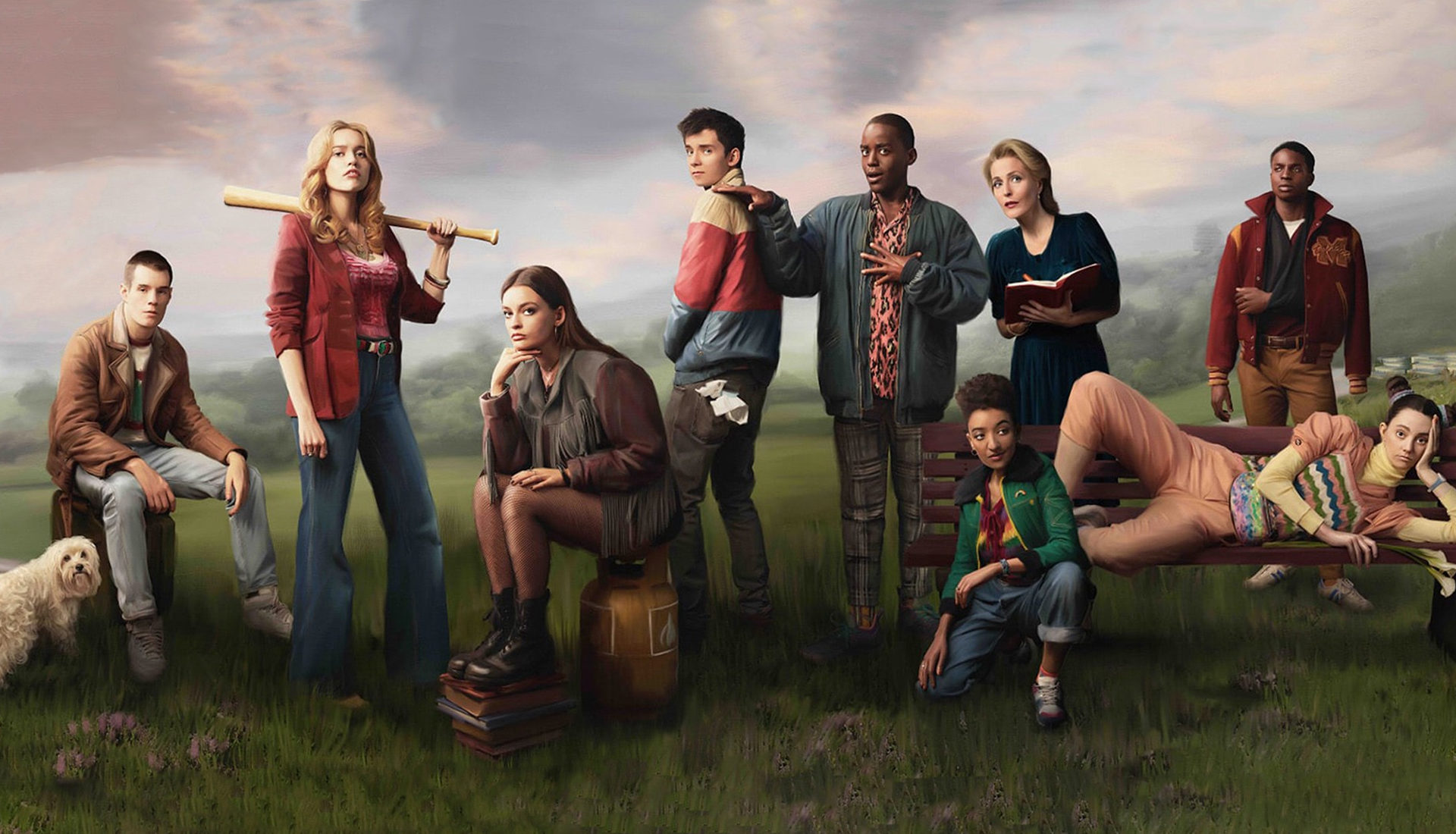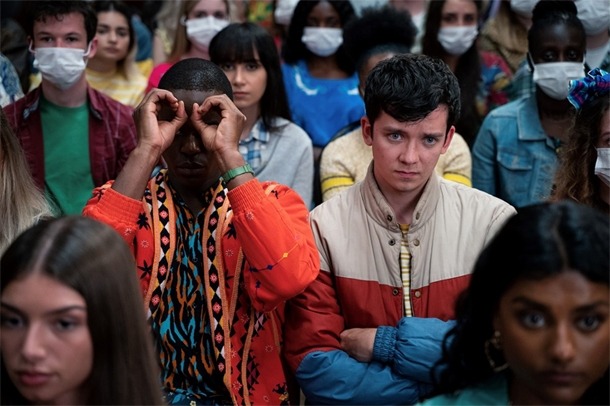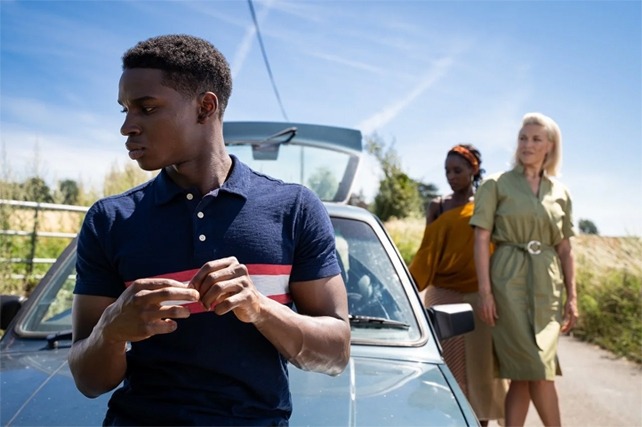Personally I’m in complete support of a roast chicken at a house party.
If the point of Sex Education season one was the importance of communication for young people muddling their way through the fog of puberty and sex, then season two is about how to transcend the physical and foster genuine connection.
This time around the show tackles a similar oeuvre of calamities – generally sex related, whilst dabbling in faith, addiction, and mental health – but doubles down on its darker subplots. Whilst certain issues from the last season are resolved (resulting in one of the most graphic and hilarious opening montages I’ve ever seen) most character’s trauma is built and expanded upon, and some characters are given shiny new problems to deal with.
Already having established the bulk of its ensemble cast, its primary episode sets a furious pace. Characters flung away from the central action by last season’s finale spend initial screen-time working their way into more convenient narrative positions.
Whilst Maeve’s (Emma Mackey) reenrolment at Mooredale Secondary and Adam’s (Connor Swindells) eviction from military school somewhat take the wind out of last season’s dramatic climax, the former introduces us to one of the season’s most satisfying cast additions (Maeve’s mum Erin, played by Anne-Marie Duff) and the latter is handled deftly, amplifying the audience’s sympathy for Adam and his inability to catch a break.


These early patch jobs are the first of many moments where you catch an unintended glimpse at the writing seams binding these plotlines together. Individually, each subplot is well handled, with some managing to be genuinely touching and poignant, but in the hurry to ensure that each lead character and the moral imperative of each arc shines through, certain B characters are left underdeveloped and some narrative transitions feel contrived.
The dreamboat French transfer student Rahim (Sami Outalbali) is given some extremely lacklustre character development, and the showrunners clearly can’t wait to clumsily write their way out of the unconvincing romance between protagonist Otis (Asa Butterfield) and the clearly non-straight Ola (Patricia Allison).
The show somewhat maintains its ‘monster of the week’ formula from last season, cycling through a range of sexual hang-ups and less explored proclivities this time through Otis’ sex therapist mum Jean (played to perfection by Gillian Anderson) who takes up a sexual health counselling role at the school.
The conceit that lands her that role is forced – you can google how chlamydia is contracted – and some of the cases she deals with feel like box ticking. It’s almost as if the writers began with a checklist of ‘issues’ they’d tackle this season – asexuality, pansexuality, bisexuality, consent under the influence etc. – and refused to chuck any on the cutting room floor despite them having no natural place.
Whilst I wish this season of Sex Education had spent a little more time fleshing out the relationships audiences were familiar with, like Otis and Maeve, instead of introducing pointless new characters (hi I’m Florence, asexuality exists, okay bye), I still thoroughly enjoyed my viewing experience. And, truth be told, devoured the whole eight-episode season in 24 hours like a greedy kid on Halloween.





















